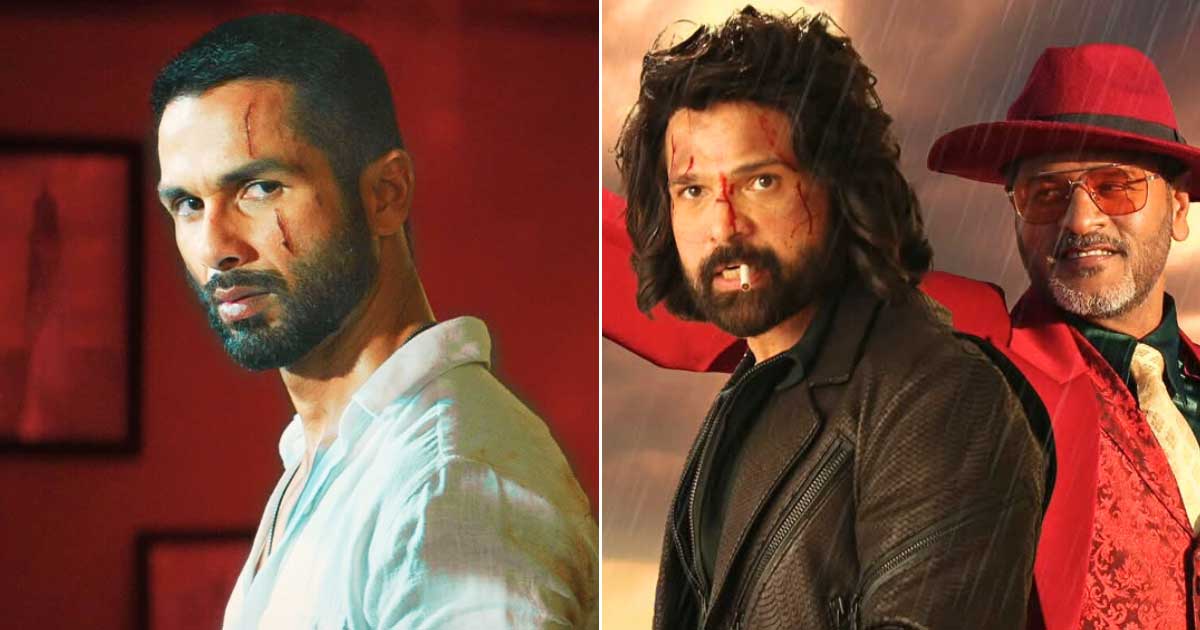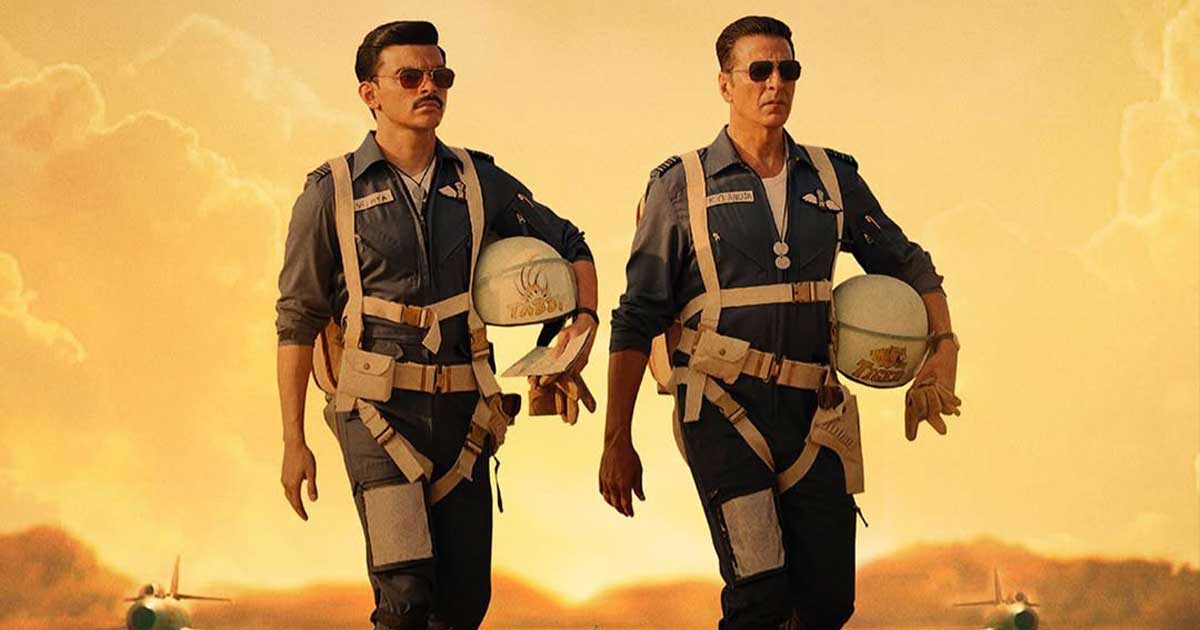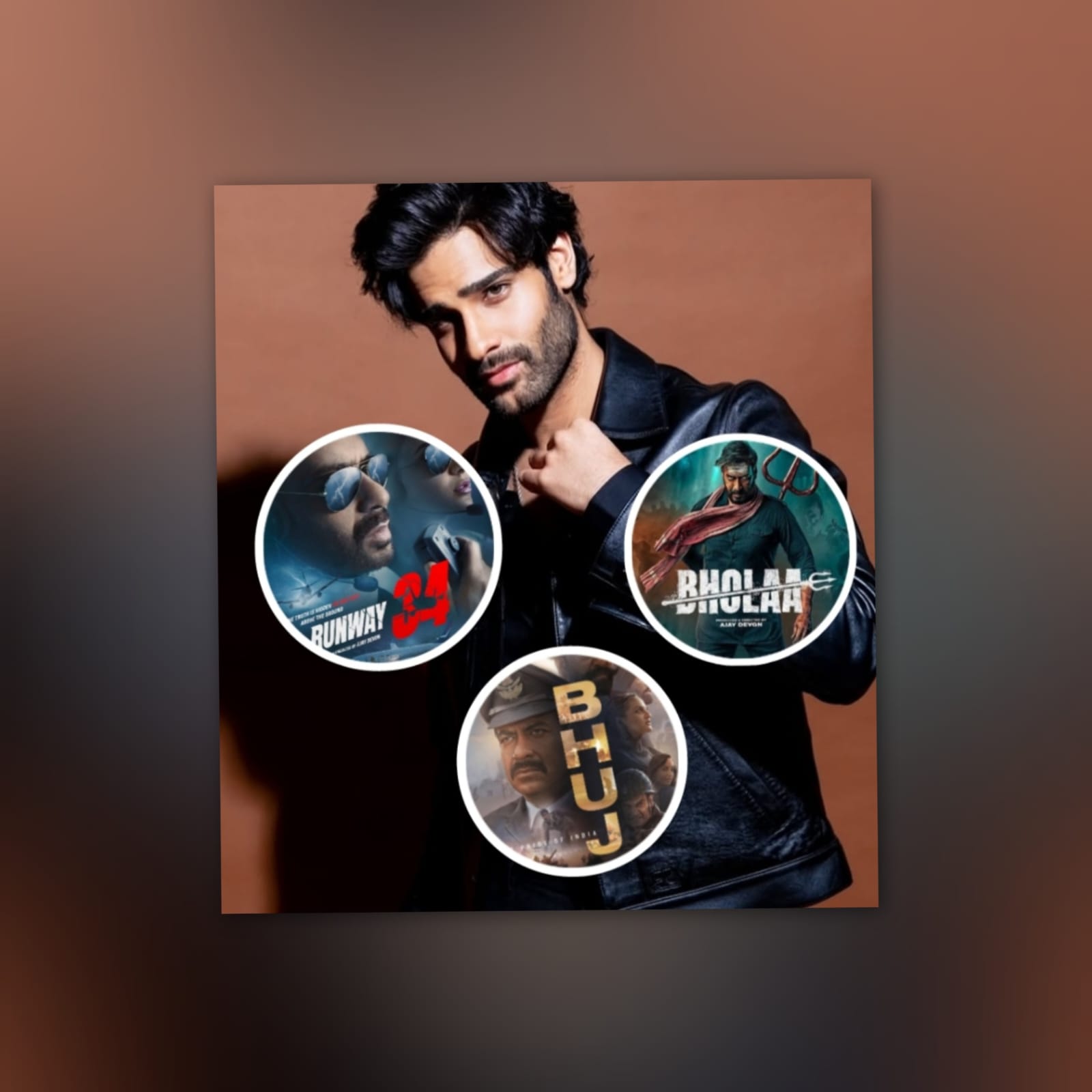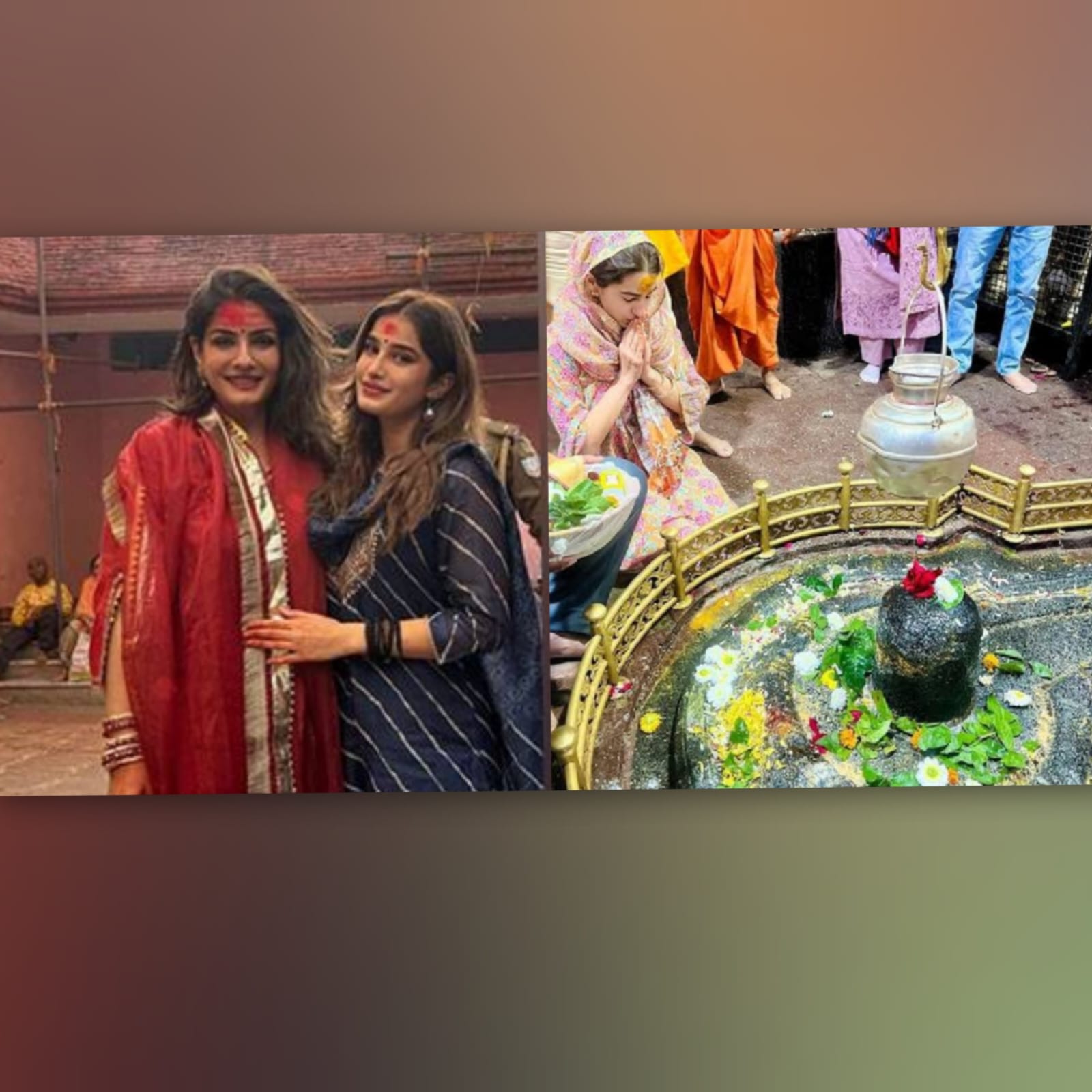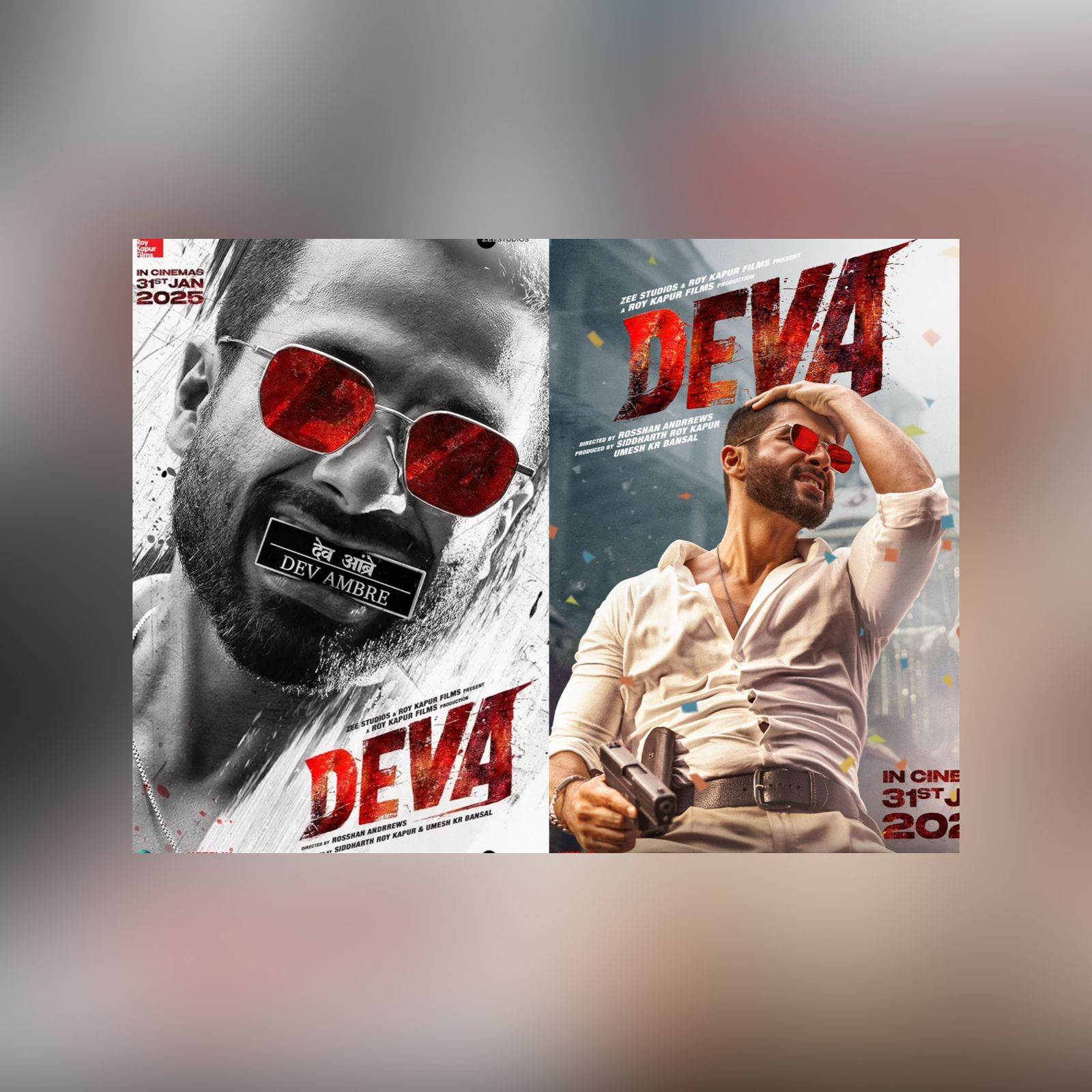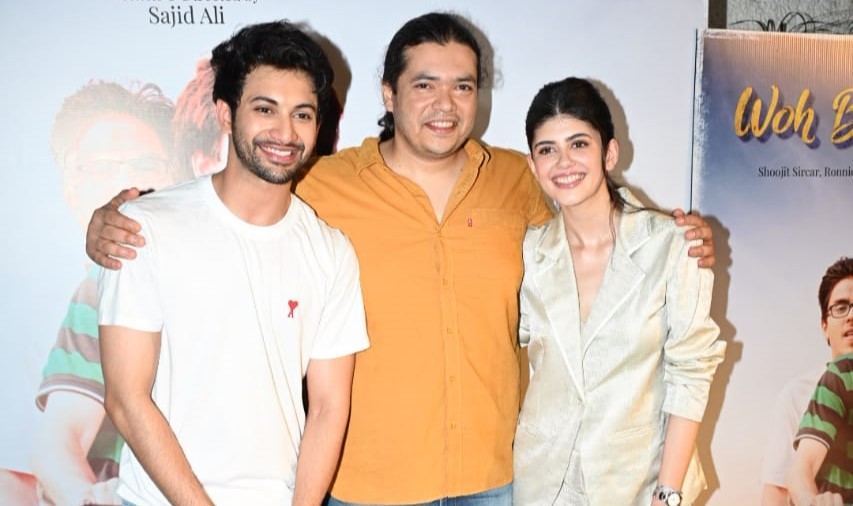
“I get drawn to stories based on human relationships” – Sajid Ali
Sajid Ali had to wait eleven years to see ‘Woh Bhi Din The’, the first film directed by him, to see the light of day. Had the film released a decade ago, one believes it would have got a theatrical release as there were no streaming platforms in India then. The concept of films releasing directly on DVD or on a satellite channel never really worked in India. After all these years, ‘Who Bhi Din The’ has found a home for itself on Zee5.
In these eleven years, a lot has happened in Sajid’s life. He directed another film, ‘Laila Majnu’, which released in the theatres in 2018. He also collaborated with brother Imtiaz Ali on projects like ‘Cocktail’, ‘Thai Massage’ and ‘Dr. Arora’. ‘Chamkila’, a film co-written by him and featuring Diljit Dosanjh and Parineeti Chopra in principal roles, started streaming on Netflix recently.
In this interview, Sajid talks about his journey as a filmmaker,
In 2012, one came across reports stating Imtiaz Ali’s younger brother is making a film on teenagers called ‘Flames’. The film, which has been produced by Shoojit Sircar and John Abraham, went on the floors in 2013. Since the last eleven years, the film was waiting for a release. Why did it take so long for it to come out?
What I have understood with time is that the only thing you can do is try and do the job you have at hand to the best of your abilities. We have no control or say over factors like market dynamics. The producers also try to do the best they can. Sometimes, the market does not respond very positively. Because of factors like demand, supply and expectations, the film could not release back then. The one thing I have learnt from this experience is humility. No matter what we tried to do, the film did not budge. It came out when it wanted to. As they say, waqt se bada koi nahin hota.
Despite being shot more than a decade ago, the film looks fresh.
I am really happy to hear that. When I got to know the film will be releasing now, my biggest concern was that it should not look dated.
The film is set in the late ‘90s. That is the time when you went to school.
Yes, that’s right. I wanted to keep an account of it. I would hang out a lot with my brothers. Inadvertently, people would speak about their school and college times. I thought of documenting the things I had seen and keeping it safe in some way. That led to me writing this script.
You were making a film set in the late ‘90s in 2013. Was it difficult to source out material or elements to use in the film?
We had to do a lot of research to recreate that time period. Apart from the obvious elements like audio cassettes, there were some lesser obvious things like bikes and stationary items that were used during those years. We had to be mindful of several things. We could not take a wide shot of the city as every terrace had a dish antenna. One could not take a shot of the market either as there would be hoardings advertising cellular companies. We did not have a grand budget to enhance or camouflage certain things using special effects. We had to be very particular about what and where we were shooting.
I still have to tell myself to believe that the film is out. The day before the film was supposed to release, it struck me that I have exposed myself to everybody out there. Suddenly, my secret is out. In your first film, you let out many secrets. You can’t hide who you are. These things did not come in with ‘Laila Majnu’, the other film I made. The film is set in Jamshedpur, the city I grew up in. I thought my classmates would be watching it. Not everybody will reach out to me but everybody would think about it. It was very important for me that they feel it is authentic and is not a misrepresentation of the time or people.
The Hindi film industry has not churned out many films in this genre. ‘Udaan’ has been one of the best coming-of-age films made so far. Incidentally, when director Vikramaditya Motwane was trying to make the film around 2005-06, he had approached you to play the lead role. I think it was you who suggested him to set the film in Jamshedpur.
Actually, it was Imtiaz who made that suggesting to him. Vikram bhai and he had been friends for a long time. He asked me to read the story. At that time, it was set in Delhi. My brother told him that Jamshedpur will be more interesting as it is an industrial township. Vikram bhai was telling everybody that he wanted a younger version of Imtiaz. At that time, I was not as fond of eating as I am today. Imtiaz and I had a similar build. So, Vikram bhai thought I would be the right fit for the role. He could not make the film then.
The film is shot in Loyola School, Jamshedpur. Did you study in the same school?
Yes, I did. A lot of things you see in the film were derived from my own experiences. We went on a school trip to Puri. That’s why I thought of sending these kids on a trip to Puri as well. It is a very serene and peaceful town. We shot a lot in Konark and Chandrabhaga Beach, which is quite close to it.
Films like these feature younger actors who are just starting out in their careers. There seems to be a bit of struggle involved in marketing these films. Do you think a lot of filmmakers refrain from making films in this genre as they feel it would be difficult to sell them?
That is one reason, for sure. I wrote this story thinking that nobody would be interested in it. I wrote it because I was having fun. Then, I would pitch it to producers telling them, “I know you are not going to make this film but here is a story I have”. I narrated it to two producers. Both wanted to make it. I made it with the second producer I narrated the script to.
After the narration, the producers would ask me why I thought they would not be interested in backing a script like this. I would tell them that we will have to cast teenagers to do the parts and there won’t be any saleable names. That’s the reason I thought they would not be interested in backing it. I was fortunate to find those people who wanted to put their money into creating something bigger than a project. They wanted to tell a story. That’s how the film happened.
There is another reason I feel why not a lot of films get made in this space. By the time you get accomplished as a filmmaker to make the kind of stories you want to tell, you have aged so much that you have forgotten a lot of things about that phase of your life and moved on. If somebody asks me to make this film again, I won’t be able to. I won’t remember the details and won’t have the kind of passion and energy I had a few years ago.
The actors in the film are now all grown up. Many of them are now working actively in mainstream Hindi cinema. How do you look back at those memories of directing them?
Out of all the youngsters in the film, more than 95% were the ones who had not faced a camera earlier. The main leads were cast from schools in Jamshedpur. We did rounds of different schools in the city. We wanted authenticity. We organized after-school workshops for those who were selected. Some of them have become full-time professional actors. There is a very talented actor called Gaurav Prawnjali. I worked with again on the series ‘Dr. Arora’. At that time, he attended the workshops as it was during his school hours and he wanted to bunk classes (laughs). Through this film, he found purpose and direction in his life. Sanjana was a part of ‘Rockstar’ as a child actor. Adarsh had done ‘My Name Is Khan’. However, it was the first time they played performance-oriented roles. This was the first time Rohit (Saraf) faced the camera as an actor. It was the first film for many HODs who worked on the film.
The soundtrack, just like the film, has not aged. It sounds fresh.
I always felt that music is one of the strongest pillars of our film. These days, we hear a song and forget it in three months. By the next year, it is out of our memory. Over the years, technology keeps changing. The way you program, mix and master a song changes. Therefore, it is a huge thing for this album to be relevant and heard eleven years after it was made.
Joi is an immensely talented musician. He is a pure musician. Some people string things together and make a song. This guy is only heart. That is his strength as an artist. His Eastern Indian sensibilities are a gift.
It has been close to six years since ‘Laila Majnu’ released. How do you look back at the film?
I still keep hearing about it from different people. It used to surprise me a lot. Now, I have become more used to it. It was a film which was pulled out of the theatres in the first week of its release. So many friends, who did not get the time to watch the film in the first week, went to watch it the next Friday. However, by that time, the film was out of most theatres. Life has its own plans for you. At that time, not many people took notice of it. However, even after 5-6 years of its release, you are talking to me about it. This is very humbling. Sometimes, you don’t get your due upfront. It comes in installments.
Around 2012-13, you wrote a show for Channel V called ‘The Buddy Project’, which was also centred around school life.
I had co-written ‘The Buddy Project’ with Sourabh Swamy, who also co-wrote ‘Woh Bhi Din The’ with me. Sourabh was my batchmate in school. We would reminisce about our school days and use those memories to write scenes and create moments in the show. I remember the show very fondly. I am so glad to be reminded of it. For the first time, I had enough money to buy an iPhone. Any kind of work has its set of challenges. It was one of the first professional assignments I worked on in my life. Experiences like sitting with producers and attending meetings were very new to me. Tab toh meri daadhi bhi nahin aati thi (laughs). Maybe, I was hired for this job because I looked very young.
In 2012, ‘Cocktail’ released. You co-wrote the film with your brother Imtiaz Ali.
It was something I was not prepared for initially. I was brought in to do the dialogues. I had just returned from London after living and studying there for three years. I studied filmmaking at the London College of Economics/University of Arts.
The film did well commercially. However, there was some criticism against the film as well. Some critics and social commentators pointed out how Gautam (Saif Ali Khan) eventually chooses the conservative Meera (Diana Penty) over the free-spirited Veronica (Deepika Padukone).
I don’t blame them. While writing the script, it happened organically. It was a story we were telling and we had not thought so much about this angle. My brother had written the story. He followed the natural arc of the story and made it as interesting as he could. When the film released and some people pointed this out, it struck for the first time and we wondered whether we are being anti-progressive. The film also addressed this issue. There is a scene in which Veronica tells Gautam, “test drive mere saath aur ghar leke jaao sati-savitri ko”. This guy is in a relationship with somebody who falls in love with somebody else and that potentially destroys everybody’s lives. Eventually, the first girlfriend becomes a bigger person. In our mind, that was being progressive. Deepika Padukone was so good in the film that she had everybody’s heart. The audience felt more for her. It could have been the other way around as well. Gautam might have met Meera first and fallen in love with Veronica after that.
Imtiaz is much older to you. What kind of influence he has had on your life?
I have grown up on Imtiaz’s stories. He is a natural storyteller. I am not. When I was little, he would put to bed by telling me stories. A lot of times, he would take me to a puliya and make me listen to his stories. He was working in Mumbai and I was in school. I could see the passion he had towards his work. I have understood his grammar in language since that time. When we work together, he does not have to explain a lot to me. That is why he has given me so many chances to write with him. I understand his vision and where he wants to go with it. The process becomes much faster.
He is the reason I am in this industry. If not for him, I might not have even come to Mumbai. Both my brothers, Imtiaz and Arif, have been much older to me. I have looked up to them more as father-figures than elder brothers. Because of them, working in the industry was very cool. I thought I would never get there. When I was in school, there was a lot of curiosity about the film industry. They would ask me what your brother does and what are the shows he has worked on. I also saw a lot of prejudice. Some teachers outrightly discarded me by saying things like, “iska kya hai, yeh toh filmon mein jayega”. They used to belittle me. After finishing college, I had a long chat with my brother. It was then that I decided that I decided that I would pursue filmmaking. I enjoy the world of stories and thought I would be able to contribute to it in some way.
Imtiaz suggested I do some kind of course in filmmaking. Before that, I wanted to be a journalist. Current affairs and politics are of great interest to me even now. I thought if I don’t enjoy filmmaking, I will get back to this. I had also considered making documentaries after getting back to India. While doing that course, I developed an interest in screenwriting.
Imtiaz Ali was one of the filmmakers who came in the early and mid-2000s who broke the mould and inspired many filmmakers.
Yes, his generation has inspired us greatly. However, if you look back, you realize the industry has always given opportunities to outsiders. Where did Shah Rukh Khan come from? Now, of course, the number of people coming from outside has increased significantly. That is because a lot more work is happening now. We are telling a lot more stories. Different subjects are being explored.
After being named ‘Flames’ and ‘Banana’ at different points, the film was finally released as ‘Woh Bhi Din The’. What made you finalize this particular title?
The film was called ‘Banana’ for the longest time. It was actually called ‘Banana’ for something which went out of the screenplay. The little bit that was left went out during the editing process. I would have had a tough time explaining to everybody why it is called ‘Banana’. However, it was a very catchy and friendly name.
A year back, my producer Sheel Kumar called me. He is the driving force behind the film coming out. He has had a crazy passion for this film. He is the one who commissioned the film. He trusted me with directing the film. I was a nobody then but he placed his faith in me. He has been the only person who believed that the film will come out one day. Everybody, including myself, had stopped trusting him but he stayed true to his word.
Last year, when I met Sheel babu, he said let’s change the name of the film. We already had a song called ‘Woh Bhi Din The’. The film closes with that song. In the film, Rohit () comes back to his school and reminisces about the days he had spent there. It is a piece in nostalgia. Since we shot and finished the film years back, the process of making it also became nostalgic for us. We, therefore, decided to use ‘Woh Bhi Din The’ as the final title of the film.
‘Chamkila’, co-written by Imtiaz and you, started streaming on Netflix a while back. You grew up in Jamshedpur, Jharkhand. Did you have any exposure to Chamkila’s music when you were growing up?
I had not even heard of Chamkila before somebody asked me to write a script based on his life. I can’t speak Punjabi. I know as much Punjabi as somebody listening to Daler Mehndi in the ‘90s would know. We did a lot of recce and research on this film. Also, I took to his music like how a rat takes to cheese. It belongs to a different time. The instrumentation was very different. It might not cut through today’s generation but those were path-breaking melodies. I realized if one would remaster them, they would appeal to everybody.
People would say Chamkila writes ashleel songs. However, there was so much more to them. The writing is incredible. He was such an incredible talent. I used to get his songs translated from Punjabi to English to understand them properly. I have many favourite Chamkila songs now. His andaaz-e-bayaan was very strong. That is the reason why he became such a popular artist.
Did Imtiaz and you write the script together?
I wrote a draft. After a draft or two, he came in.
You used to run Tripper Cold Café, a café based in Mumbai. How did you get into the food and hospitality business?
The café was actually run by my wife and her brother. My brother-in-law runs a fabulous restaurant in Srinagar called Café Liberty. My wife and him decided to open a small café. I would go to hang out there with my friends. I would also sit and work from there. I got so drawn to the day-to-day workings of it. All the recipes were mine. Getting the opportunity to serve food to people is a blessing.
Tripper has now been shut down. It was one of the victims of Covid. After Covid, we tried to run it but restrictions were getting lifted slowly and it became difficult for us to sustain it. It takes a lot to set up a café or a restaurant. There is a lot of monetary and emotional investment involved in it. You also need to be good at managing people. My wife has moved on to doing something else. I have come back to making films.
What kind of work do you plan to do next?
I don’t know what I will be making next. I find people very interesting. I like stories which have interesting characters leading the way and the narrative unfolding through their actions and choices. I get drawn to stories based on human relationships. I am not just referring to man and woman stories. Stories could also explore the relationship between friends, neighbours and even enemies. I like humour. I have always been very interested in society and the way it functions. That is the kind of stories I want to pursue through my cinema.
Publisher: Source link
